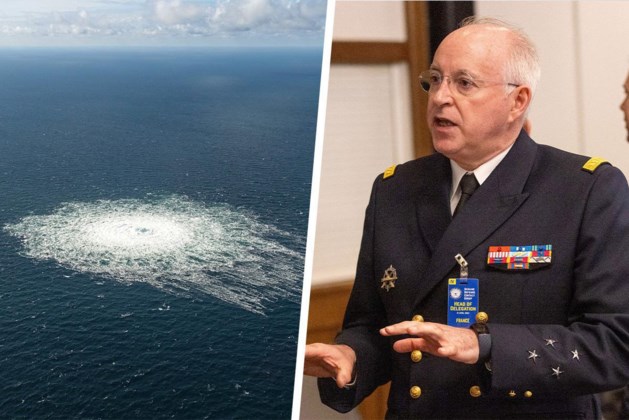Indeed, the admiral says the network of undersea cables and pipelines on which Europe’s energy and communications depend are not built to withstand the “hybrid warfare” pursued by Moscow and other NATO adversaries.
Suspicious incidents have already occurred at the Nordstream installations, among others. — © REUTERS
“We know that the Russians have developed a lot of hybrid warfare under the sea to disrupt the European economy, through cables, internet cables, pipelines. Our entire economy under the sea is under threat,” he said. “And to be clear, we know what the Russians have developed in terms of nuclear submarines to operate underwater. So we are not naive and NATO countries are working together.”
Many weak spots
Maleterre’s comment comes after two incidents of suspected sabotage on gas pipelines in the Baltic Sea in the past 18 months. First there was an incident on Nord Stream 1 and 2 in September 2022. In October 2023 there was an incident on the Balticonnector natural gas pipeline. Regarding the latter incident, Finland said in December that “everything indicates that a Chinese ship had deliberately damaged the Balticonnector with its anchor.” Despite extensive research, both problems remain unresolved.
Maleterre, who stressed that he himself had spent more than 1,000 days in a submarine, said much had changed since the development of the submarine infrastructure, making it extremely vulnerable.
(Read more below the photo)
Gas leak at Nord Stream 2, Denmark September 27, 2022. — © via REUTERS
“They (the companies responsible for it, ed.) did not know that such hybrid warfare would develop so quickly. More than 90 percent of the Internet is under the sea. All our connections between the US, Canada and Europe are underwater, so there are a lot of weak spots.”
“We can’t monitor everything”
According to Maleterre, there are “more than 100 ships, nuclear submarines and conventional submarines” patrolling the Arctic, Black Sea, Atlantic Ocean, Baltic Sea and Mediterranean Sea at any given time. “That is an important point because it is a security issue for almost 1 billion of NATO’s citizens. We must be protected and well supplied by our vital undersea infrastructures,” Maleterre said, emphasizing that not every part of our undersea infrastructure can be monitored.
“All our connections between the US, Canada and Europe are under sea, so there are many weak spots”
Didier Maleterre
NATO-Admiraal
“We are currently paying particular attention to the Russians, but permanently monitoring every cable is not possible. We know there are many vulnerabilities… With offshore installations, the responsibility lies primarily with the countries themselves,” he said.
The addition of Finland to the NATO fleet last year and more recently that of Sweden in March are seen as very important for the protection of the Baltic Sea and the Arctic. “Sweden’s experience in both regions will enhance NATO’s ability to detect and deter regional aggression. And when we talk about aggression, we naturally think of Russia,” Malterre said.
